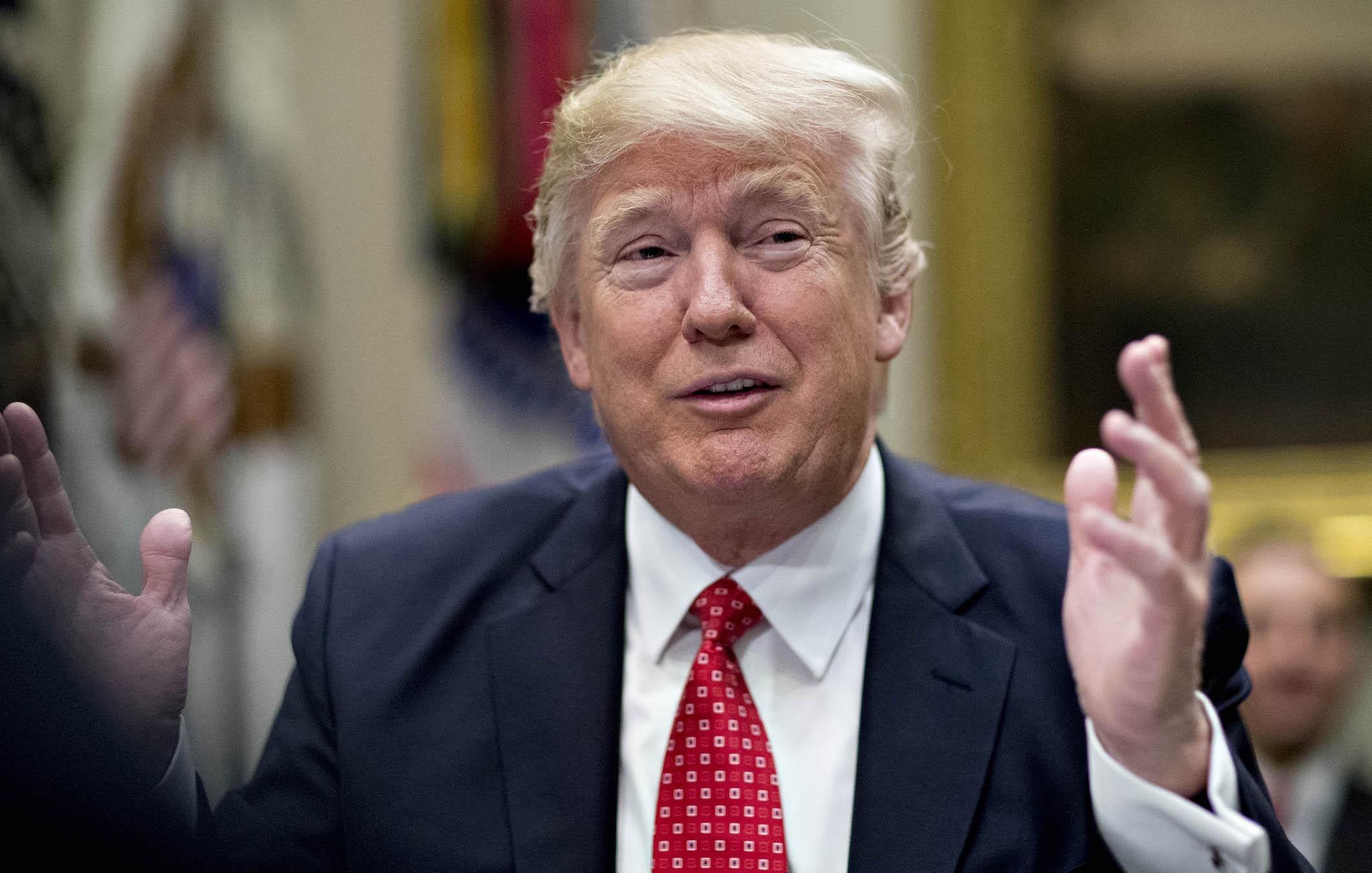I'm an attorney, but you don't need my expertise to realise that Trump will lose his legal battle over the 'Muslim ban'
The law's roundabout approach to discrimination is unlikely to fool many federal judges. It is of no significance that the order's drafters, presumably knowing that the Constitution bars religious discrimination, were prudent enough to keep the words 'Muslim' and 'Christian' out of the order

Your support helps us to tell the story
From reproductive rights to climate change to Big Tech, The Independent is on the ground when the story is developing. Whether it's investigating the financials of Elon Musk's pro-Trump PAC or producing our latest documentary, 'The A Word', which shines a light on the American women fighting for reproductive rights, we know how important it is to parse out the facts from the messaging.
At such a critical moment in US history, we need reporters on the ground. Your donation allows us to keep sending journalists to speak to both sides of the story.
The Independent is trusted by Americans across the entire political spectrum. And unlike many other quality news outlets, we choose not to lock Americans out of our reporting and analysis with paywalls. We believe quality journalism should be available to everyone, paid for by those who can afford it.
Your support makes all the difference.President Trump's executive order banning immigration from seven predominantly Muslim countries has sparked worldwide chaos and disrupted tens of thousands of lives. But the ban is not just unwise and inhumane; it is unconstitutional.
The First Amendment protects religious freedom in two ways. The Establishment Clause prohibits the government from favouring religion over secularism or from favouring one religion over another. The Free Exercise Clause prohibits government from imposing special burdens on people because of their religious beliefs. Trump's travel ban violates both provisions.
Its discriminatory purpose and effect are obvious. The ban targets people from predominately Muslim countries and directs officials to “prioritise refugee claims made by individuals on the basis of religious-based persecution” over claims based on other forms of persecution. This illegally expresses a government preference for religion, breaching the wall between church and state.
But the ban goes further: in addition to privileging religion, it allows only non-Muslims to benefit from this privilege by stating that officials may only prioritise religious persecution claims if “the religion of the individual is a minority religion in the individual's country of nationality.” Because the ban targets only predominately Muslim countries, this language implicitly expresses a preference for Christianity (or other religions) over Islam, punishes Muslims for their beliefs by disqualifying them from a government privilege, and instructs officials to allocate and deny legal privileges to immigrants on the basis of their religion. A high school civics student would understand that such a law is not compatible with the Constitution's guarantees of religious freedom.
The law's roundabout approach to discrimination is unlikely to fool many federal judges. It is of no significance that the order's drafters, presumably knowing that the Constitution bars religious discrimination, were prudent enough to keep the words “Muslim” and “Christian” out of the order.
Even if the text and targeted applicability of the ban did not make its intent plain, statements from Trump and Rudy Giuliani, who helped draft the order at Trump's request, remove any doubt that the order is intended to discriminate against Muslims. Trump promised his supporters that he would ban Muslims from entering the country. He went on the Christian Broadcasting Network last week to say that he sees helping persecuted Christians (but not persecuted Muslims) as a “priority.” And Giuliani stated that Trump had referred to the order as a “Muslim ban” and asked Giuliani for a “legal” way to implement such a ban.
Although the ban's incompatibility with the First Amendment is its most obvious legal defect, it is far from the only reason the order is illegal. For example, the order violates the Equal Protection Clause, which protects all “persons,” not just U.S. citizens, and bars discrimination on prohibited grounds including race and national origin. It violates the Due Process Clause, which protects the rule of law, by arbitrarily rescinding visas that the government had already conferred and by replacing established immigration procedures with arbitrary and standardless waivers that open to the door to case-by-case discrimination.
Federal judges need accept only one of these arguments – or one of the many others that have been advanced – to hold that the order is illegal. As the court decisions striking down the ban will make clear, this is not a close case. That makes Republicans' complacency about the order particularly disturbing. By supporting the order or criticising only its execution rather than its substance, Republicans in Congress are collaborating in the most egregious violation of religious liberty in recent American history.
Trump issued the ban not only out of malice and prejudice toward Muslims, but also out of a flagrant disregard for the Constitution. His action reflects an autocratic mindset that poses a serious threat to our political system, and his use of an unconstitutional order to discriminate against a religious minority is an impeachable offence.
Ryan McCarl is an attorney and writer based in Denver
Join our commenting forum
Join thought-provoking conversations, follow other Independent readers and see their replies
Comments